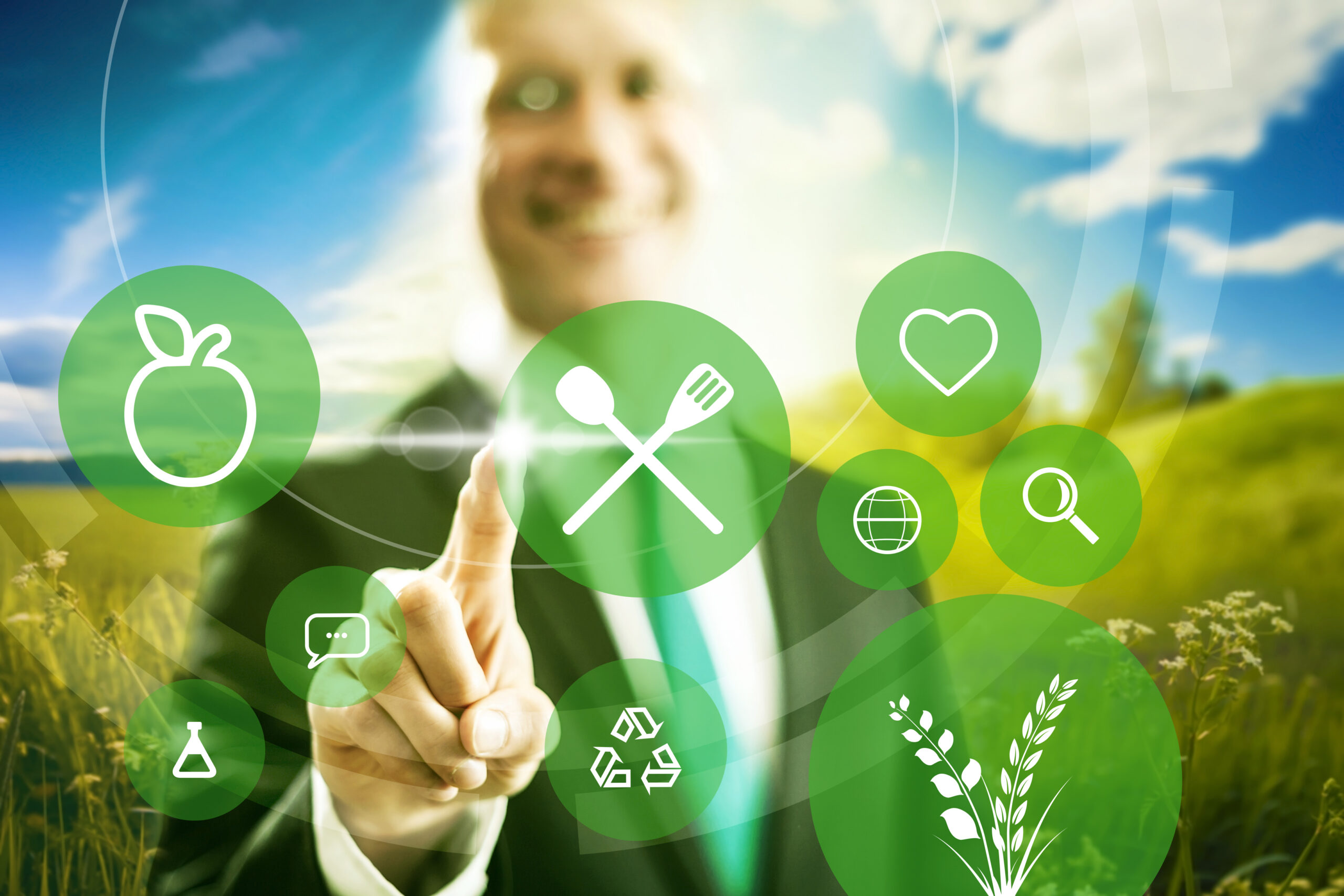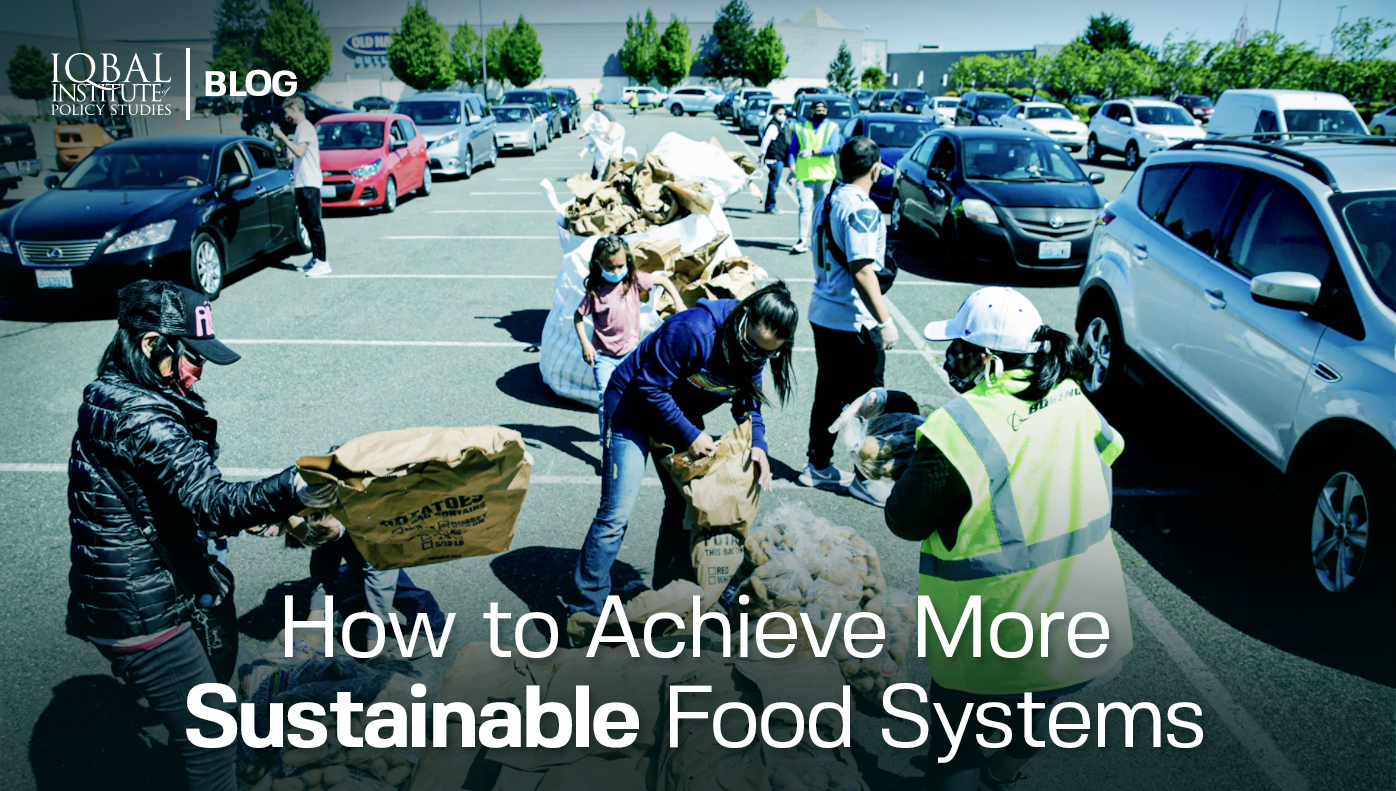Preamble
The COVID-19 pandemic has prompted governments around the world to reflect on their food systems. Although the science is not certain yet, evidence suggests that the virus may have originated from a food market in Wuhan, China. The effect of the pandemic on global food systems is acute. This blog presents the challenges created by the pandemic for the global food system and presents a way forward for the implementation of a sustainable food system.
Research Questions
-
What is the aftermath of COVID19?
-
Why progress needed on sustainable food development?
-
How can Pakistan ensure sustainable food development for the future?
Introduction
An estimated 820 million people did not have enough to eat in 2018 (WHO, 2019), and now an estimated additional 130 million may experience a hunger crisis due to the pandemic (WFP, 2020). This could easily become the worst humanitarian crisis after World War 2. The world is not only facing a global health pandemic but as millions of civilians all around the globe face being pushed to the brink of starvation, the situation is rapidly becoming a hunger pandemic. Even in high-income countries like the United States, scenes of crops rotting in the fields and people waiting in long queues for food rationing can be seen (Nicholas, 2020). Times like these have prompted world governments to pay attention to their food systems and make sure that a sustainable food source and supply chain can be managed. Developing countries, like Pakistan, face more problems as farmers cannot sell their crops due to a drop in demand and are forced to lay their crops to waste or sell them for an exceptionally low price. Immediate and purposeful action must be taken to bring about a fairer, nutritious, sustainable, and resilient food system in response to COVID-19. Therefore, access to sustainable and healthy food is key to long-term recovery, while reducing the likelihood of a future pandemic.
Why Progress is Needed on Sustainable Food Development in the Aftermath of COVID-19?
The global economy will not remain the same after the COVID-19 pandemic. Due to widespread sickness and death, demand for goods has plummeted, and unemployment has soared. The travel and tourism industry has been disrupted on a massive scale, and the retail sector has been transformed by social distancing and remote working arrangements. Governments will spend millions of dollars supplying fiscal stimulus to the economy, and food systems should be at the heart of their decision-making. The pandemic has exposed the vulnerability and weakness of the food system in Pakistan as disease containment systems can provoke a collapse of the country’s agricultural system and endanger the lives of millions of people. The risk of the virus spreading is very high as more than 500,000 cases have already been verified to date with more than 12,000 deaths (Dawn, 2021).
Problems of sanitation, general lack of knowledge on how to treat symptoms, and barriers in adopting measures such as hand washing, masks, and social distancing have greatly increased the risk of disease spreading. The virus came to Pakistan during the harvesting season, and since global supply chains stood disrupted, a majority of the produce could not find a way to export bays. Transport of goods remained greatly reduced during the pandemic, markets remained less accessible, and small producers had difficulty in selling their product, ultimately leading to wastage and falling prices. Pakistan is already struggling to meet its SDGs goal 2, zero hunger, targets and the added burden of the coronavirus pandemic has now called for greater attention towards methods which can make the food system more sustainable in the future. (reliefweb, 2020)
Sustainable Food for the Future of Pakistan
The events unfolded during the coronavirus pandemic offer big opportunities for change. Decisive actions in four areas will be critical in ensuring that Pakistan has adequate food supply for its citizens in the face of natural disasters and pandemics. The first in the line of these four ways is to prioritise hunger exacerbated by the pandemic along with encouraging political will. The world has seen an increase in chronically hungry people due to the pandemic and the same is also true for Pakistan. These people are in immediate need of humanitarian assistance and protection. Urgent efforts must be taken to provide relief, access to food, and provide humanitarian funding. Second is to ensure people can access and afford nutritious and healthy food. As food prices have increased, more and more people are in danger of being malnourished. To help with this situation, the government can expand social safety nets and implement public distribution systems. Policies can be enacted which ensure access to affordable and healthy food. Investments in local food supply chains are also important, and it may be a good time for governments to reform their subsidy schemes.
The third step can be to broker new deals with farmers. The pandemic has revealed new vulnerabilities of farmers, and at the same time, it has proved them to be the most important section of the society. As such, farmers should be handed out subsidies to mitigate their losses and help them recover for the next season. Lastly, the fourth and final step can be to produce, protect, reduce, and restore. Pakistan can increase its agricultural sustainability through increased investment in agricultural research and development coupled with policy reform. These investments can also be linked to enhancing commitments to protect nature. The efforts to produce and protect can then link up with efforts to reduce and restore. The reduced agenda targets efforts to lower meat consumption and increase plant-based diet, whereas the restored agenda focuses on the restoration of degraded land with huge impacts on rural economies. Therefore, there is little time to lose amidst the continuing impacts of the coronavirus pandemic and the focus should be to make the food system of Pakistan more sustainable.
 Conclusion
Conclusion
The widespread impacts of COVID19 have also affected the food system of many countries. Rich and high-income countries like the United States also suffered initially during the pandemic due to closure of supply chains and fall in demand. Pakistan has also faced similar effects but on a larger scale. Unless steps are taken to ensure food systems sustainability in the future, Pakistan risks becoming victim to the hunger pandemic. Only by increasing political commitment and finance for hunger, ensuring people have access to nutritious and healthy food, brokering new deals with farmers, and adopting the produce, protect, reduce, and restore model, can Pakistan achieve sustainable food systems in the future.
Key Takeaways
-
An estimated 820 million people did not have enough to eat in 2018 (WHO, 2019), and now an estimated additional 130 million may experience a hunger crisis due to the pandemic (WFP, 2020).
-
The world is not only facing a global health pandemic but as millions of civilians all around the globe face being pushed to the brink of starvation, the situation is rapidly becoming a hunger pandemic.
-
Even in high-income countries like the United States, scenes of crops rotting in the fields and people waiting in long queues for food rationing can be seen (Nicholas, 2020).
-
The risk of the virus spreading in Pakistan is very high as more than 500,000 cases have already been verified to date with more than 12,000 deaths (Dawn, 2021).
-
Problems of sanitation, general lack of knowledge on how to treat symptoms, and barriers in adopting measures such as hand washing, masks, and social distancing have greatly increased the risk of disease spreading.
-
of goods remained greatly reduced during the pandemic, markets remained less accessible, and small producers had difficulty in selling their product, ultimately leading to wastage, and falling prices.
-
Pakistan is already struggling to meet its SDGs goal 2, zero hunger, targets and the added burden of the coronavirus pandemic has now called for greater attention towards methods which can make the food system more sustainable in the future. (reliefweb, 2020)
Bibliography
Dawn. (2021). CORONAVIRUS PANDEMIC. Retrieved from Dawn: https://www.dawn.com/live-blog/
Nicholas, K. (2020). ‘Never Seen Anything Like It’: Cars Line Up for Miles at Food Banks. Retrieved from The New York Times: https://www.nytimes.com/2020/04/08/business/economy/coronavirus-food-banks.html
reliefweb. (2020). COVID-19 could cause the collapse of Pakistan’s food system. Retrieved from reliefweb: https://reliefweb.int/report/pakistan/covid-19-could-cause-collapse-pakistans-food-system
WFP. (2020). WFP Chief warns of hunger pandemic as COVID-19 spreads (Statement to UN Security Council). Retrieved from UN World Food Programme: https://www.wfp.org/news/wfp-chief-warns-hunger-pandemic-covid-19-spreads-statement-un-security-council
WHO. (2019). World hunger is still not going down after three years and obesity is still growing – UN report. Retrieved from World Health Organization: https://www.who.int/news/item/15-07-2019-world-hunger-is-still-not-going-down-after-three-years-and-obesity-is-still-growing-un-report


Leave a Reply